This past summer I started writing a monthly feature called “Word Machines,” in which I would feature a fellow unknown writer and their work with my network of readers. When the opportunity arose to take over editorial duties for this site, I mentioned to Henry that I’d like to shift the Word Machines feature over here as well. SPR has a lot more traffic and readers than my humble blog, and I think it would better service the talent I want to showcase here.
Since I began digging into the indie scene, one name kept popping up: R.J. Keller, author of WAITING FOR SPRING. I wrote her name down in a list of potentials over six months ago, and it wasn’t until early December that I finally got to her book. I wish I hadn’t taken so long.
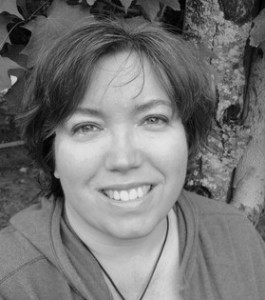
I had zero expectations when I picked up this book. It’s been a long time since I could say that. However, I knew by the end of the first chapter that I was reading something special. That feeling did not disperse, even after I reached the very last sentence. R.J.’s prose is strong. Her voice is even stronger. She’s a hell of a writer, with masterful control of description and dialogue. As a writer, I know how difficult it is to write characters who are: 1) Believable; and 2) Sympathetic. She makes this look easy, and it pisses me off (in a good way).
Her characters are going to touch your heart. I never thought I would write that, but it’s the absolute truth. I hurt with them, I celebrated with them, I lived with them for a month, and I find myself thinking about them even now as I move on to other things. I can’t reiterate my praise for this book enough. As I tweeted last week, “Buy it. Read it. Devour it.” I highly recommend you do the same.
Others seem to share my praise. At the time of this writing, WAITING FOR SPRING has 44 reviews on Amazon, and almost all of them are 4 and 5 stars. The book has done well enough that it’s attracted the attention of AmazonEncore, which will re-release a new edition of WAITING FOR SPRING under their imprint later this May.
I asked R.J. if she’d be willing to submit to an interview about her book and the publishing process. She accepted. So, without further adieu, I will turn this over her:
SPR: Well, R.J. You have the floor. Would you tell us a bit about yourself? Favorite writers? Influences?
RJK: I live in a small town in Maine with my husband of eighteen years and our two teenagers. Although Waiting For Spring is my first novel, I’ve been writing since I was a little kid, actively so since I was in my twenties. Short stories, poetry, replacement dialogue for the Star Wars movies. That kind of thing.
As far as influences go, I’ve always been drawn to novels that are on the raw, gritty side, regardless of genre. Australian author Luke Davies is a recent favorite. But I’m also a big movie buff. If I find a movie I like, I’ll watch it again and again and again. It drives my family crazy, but once I find out whodunnit, so to speak, the first time around, I pay more attention to things like pacing, character development, and the rhythm and cadence of dialogue the second and third (and frequently fourth) time around. I try to bring what I learn from that to my writing.
SPR: Please forgive the inevitable question, but from where did the idea for WFS originate?
RJK: To be honest, I began writing it as a sort of anti-chick-lit novel. Not that I am anti-chick-lit; there’s some really good stuff out there (some of it written by friends of mine). It’s just that I’d been inundated with it and I wanted to read something different, something with a lot more grit and a lot less high-heeled shoe. I think the problem was that I knew exactly what I wanted to read – a book about modern rural life that was realistic – and I couldn’t find it. So I decided to write one myself.
SPR: Let’s talk about Tess. She’s probably one of the strongest female protagonists I’ve read in fiction in a very long time, and also one of the most realistic as well. Where did she come from?
RJK: Thank you! Tess is an amalgamation of a few women I know personally and the kind of woman I’d like to be, with a dash of Clementine Kruczynski, Kate Winslet’s foul-mouthed character in Eternal Sunshine of the Spotless Mind, thrown in for good measure. She was such a fun character to write because, for all her strength, she’s such a wounded soul and doesn’t always make healthy choices. I really put that poor woman through the wringer.
SPR: In the novel, Tess has an aptitude for painting which she often resists. Was this autobiographical?
RJK: Not in the literal sense, no. I have no artistic talent whatsoever. I invested in an easel and paints and a few canvases while I was writing Waiting For Spring, for research purposes, and the resulting paintings proved that fact. But Tess uses her canvas to express herself, because she has trouble doing so verbally- actually, throughout most of the book she’s so bottled up that she can’t even paint. I can be like that sometimes, only I use a keyboard instead of a paintbrush.
SPR: I know you’re working hard on a follow-up, THE WENDY HOUSE. What, if anything, can you tell us about it? Will we see more of Tess and Brian?
RJK: The Wendy House chronicles the very rocky relationship of Brian’s parents, Rick and Wendy LaChance. In particular, we follow Rick during the course of one day, as he prepares to kill the man who murdered his daughter, all while having hallucinatory conversations with Wendy, who has been dead for over fourteen years. You will see some of Brian – mostly as a kid, but there are a few present-day snippets of him – as well as a little bit of Tess, but it’s chiefly about Rick and Wendy.
SPR: There’s obviously an audience and a market for your book. Why did you choose to self-publish?
RJK: It’s funny you should put it that way. When I was querying agents, back in the day, I was frequently told that although my book was good, there wasn’t a market for it. They felt it was too gritty to find an audience. That was incredibly frustrating. I was confident that there was a market, and I decided to put it out on my own so I could find it.
SPR: The novel has found a lot of success and garnered a number of positive reviews. How did you go about promoting it?
RJK: Mostly by way of social networking. I already had an active blog by the time WFS was released (in the fall of 2007 in print, spring of 2008 on Kindle), and I made sure to post something entertaining there at least three times a week. Humorous stories about work, general observations about life and pop culture nonsense. I’d punctuate that with posts about my book, or about publishing, but I did my best to not come across as a promoter. If all you post is “BUY MY BOOK” stuff, people tune it out with their built-in Spam filter.
That attracted the attention of self-publishing pied piper Zoe Winters, who was in the process of starting up a self-pubbing blog of her own, Publishing Renaissance. She invited me to become a contributor there, which helped me to get my name out into the publishing world. Soon that attracted the attention of authors Kristen Tsetsi and Henry Baum, who invited me to join the self-publishing collective Backword Books.
In the meantime, word slowly spread about my novel as one person would recommend WFS to a friend, and that friend would recommend it to another friend, and so on. Eventually it fell into the hands of a lady who is active on the Kindle Message Boards. She made a post there about the book, and that’s when things really started to pick up, sales-wise and review-wise. Since then I’ve become a member myself, which has been a fun experience, as well as a good way to market my book. Like blogging, the best way to do that is to just have fun and converse with people, to let your posts speak for themselves, rather than to promote-promote-promote.
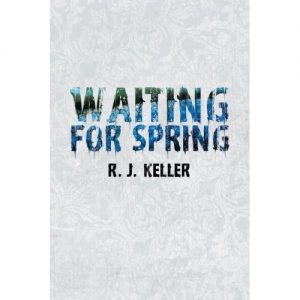 SPR: Would you tell us a little about your experience with AmazonEncore? How did you feel when they approached you? Will you pursue an on-going relationship with the imprint?
SPR: Would you tell us a little about your experience with AmazonEncore? How did you feel when they approached you? Will you pursue an on-going relationship with the imprint?
RJK: In September of last year, Terry Goodman, the acquisitions editor with Encore, sent me an email telling me that he loved my book and that he wanted to take it on. My first reaction was that it was some sort of hoax. I’d heard of AmazonEncore, of course, and even knew some authors personally who had signed on with them, but it was a truly surreal experience to read the words, “AmazonEncore LOVES Waiting For Spring!” – complete with exclamation point…w00t! – in the subject line of an email.
It didn’t take me too long to accept the offer. I was encouraged by the fact that they had been drawn to Waiting For Spring because of its grit and realism, the very thing that had caused literary agents and small publishers to reject it. Encore saw the appeal in it, the marketing as well as literary appeal, so I knew I wouldn’t have to worry about being asked to water anything down. That was, and continues to be, very important to me. And working with Encore has been a wonderful experience. I have nothing but praise for not only Terry Goodman, but for everyone there.
SPR: I’ve had the pleasure of viewing a couple of your Inside the Writer’s Studio videos (Love them! – TK) What can you tell us about Inside the Writers’ Studio? How did it come to be? Why do you call yourselves Paper Rats?
RJK: Inside The Writers’ Studio is a writer-centric YouTube show that’s written, shot, and edited by Kristen Tsetsi and myself, in which we kind of make fun of writers. Lovingly, of course.
We started about a year ago. I had already been making videos for my blog, including a mock “readers praise my book” spot. Kristen agreed to appear in it, and she turned the couple of lines I gave her into this insanely hilarious, semi-drunken character. It gave the video the perfect over-the-top quality that I’d been aiming for, but wasn’t sure how to get.
After that, it just wasn’t as fun making videos on my own, so I approached her about doing something together on a regular basis. I had a semi-formed concept of what the show might be like, which was just the two of us talking back-and-forth and being funny. But she came back with the idea of doing actual episodes, with storylines and acting and weird characters, which – of course – was a thousand times better. She also came up with the Paper Rats name, because she’s just that awesome.
SPR: Hypothetical situation: Things go incredibly well with AmazonEncore, and one day an agent calls, asking to represent you. What do you say?
RJK: It would depend on…well, it would depend on a lot of things. I’m not anti-agent, in spite of the rejections I got. Although I’ve made a point of educating myself about the business end of the publishing industry, I’m fully aware of my own limitations, and the industry is still in flux. Things are changing very dramatically very quickly. Who knows where we’ll be this time next year? Still, I’d want to make sure that anyone representing my interests was savvy about those changes, that they were open to new ways of doing things, and not married to the old publishing world.
SPR: Leading from the previous question, where do you hope to see yourself in ten years? What are your goals as a writer? Who do you hope to reach with your work?
RJK: It’s funny, because when I was young, in the wildest of my wild dreams I used to imagine myself as this hermit author with a small handful of rabidly loyal readers, then when I died (at a ripe old age, and of anything other than alcoholic liver disease) that’s when I’d become wildly famous.
These days, though, I just imagine myself doing the actual writing part…now, ten years from now, twenty years from now. I’d love to make writing The Thing I Do For A Living, and I think I’m on a path where that could be a reality. But I need to make sure I stay focused on the writing part and not the career part. If I do that first part well enough, then I think the rest will work itself out.
SPR: This is a question I always ask in interviews: Why should people read things you’ve written?
RJK: Because my stuff is emotionally honest. I don’t aim for just telling stories when I write. I don’t want people to just read words on a page. I want the words to dissolve and seep into their pores. I want people to think, “I have felt just like that! I thought I was the only one!” And I think that, most of the time, I succeed.
BONUS QUESTION: You’re only the second writer from Maine whose work I’ve read, which compels me to ask: Have you ever met Stephen King?
RJK: No. I saw him at the Bangor Mall once, when I was a teenager, but I was too chicken to approach him. I’m glad, too, because I had just finished reading four of his books in a row, so I was in full “OH MY GOD THAT’S STEPHEN KING”-land and would have made a complete ass of myself.
Many, many thanks to R.J. Keller for submitting to these questions. I hope I didn’t make the process too painful for her. Her novel, WAITING FOR SPRING, is available now on the Amazon Kindle, and will be re-released by AmazonEncore this May.
R.J. Keller links:
Get an Editorial Review | Get Amazon Sales & Reviews | Get Edited | Get Beta Readers | Enter the SPR Book Awards | Other Marketing Services


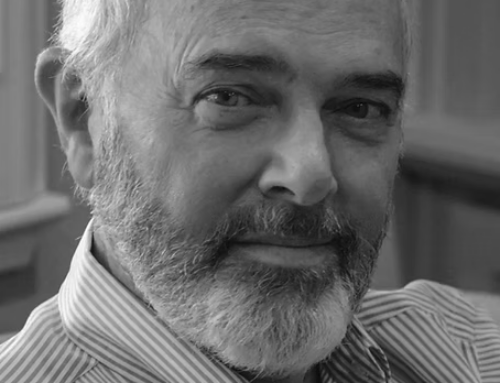
















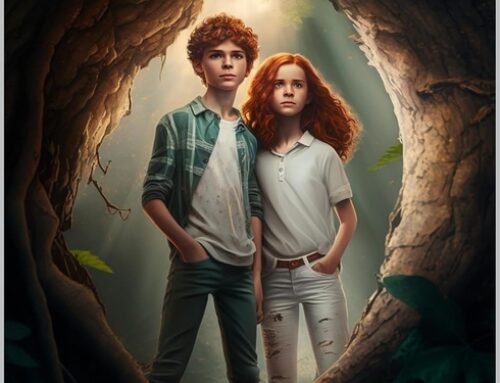

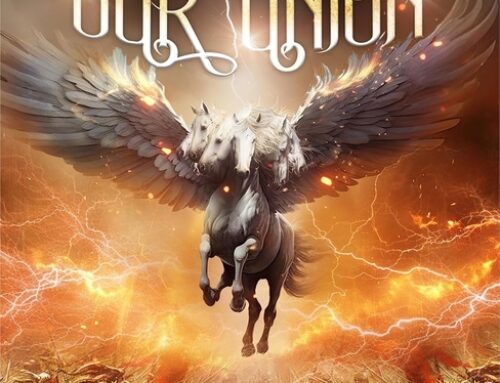
[…] 2011 you were asked how you would respond to being approached by an agent. You […]
[…] 2011 you were asked how you would respond to being approached by an agent. You […]